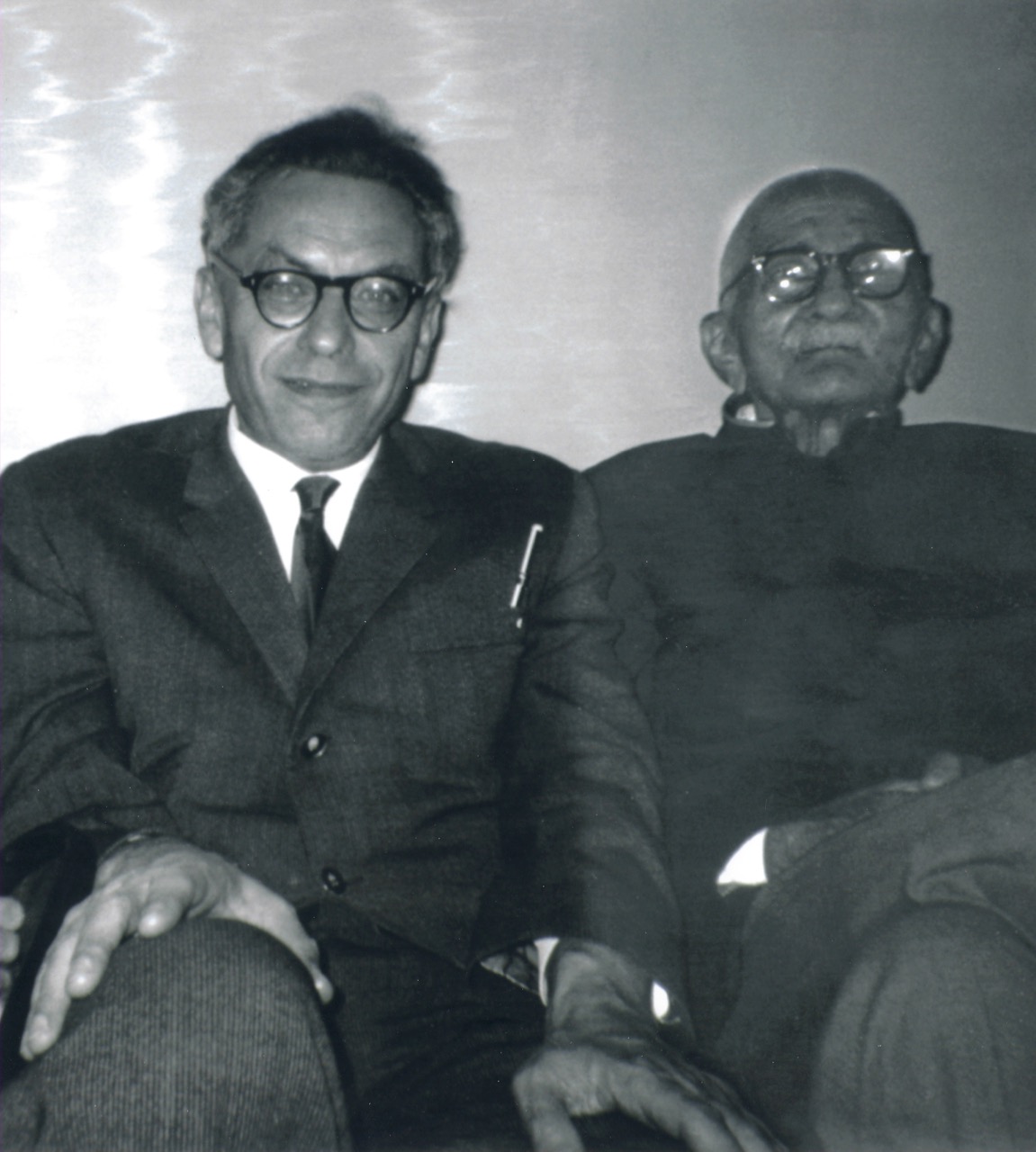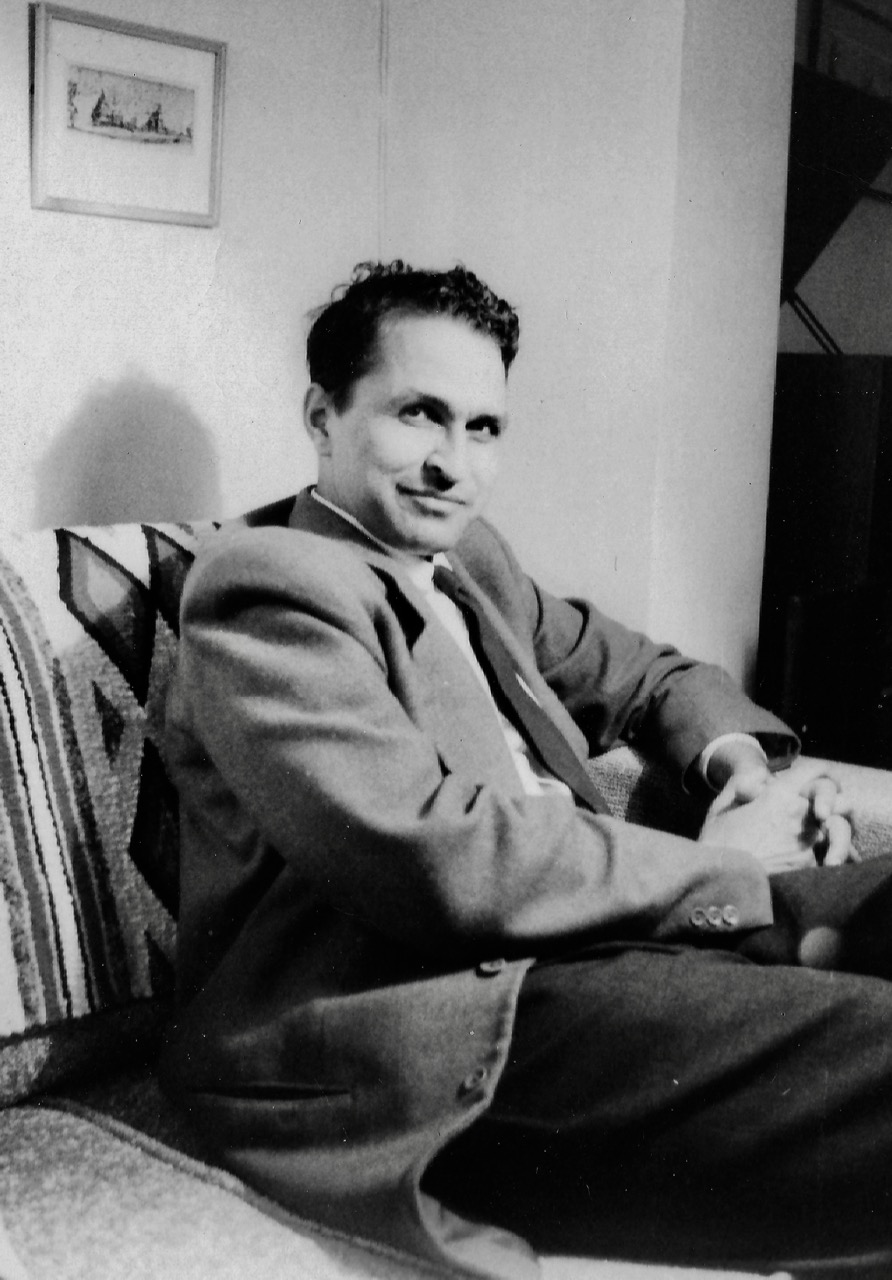Dr. Ambikeshwar Sharma
Dr. Sharma's father, Pundit R. D. Sharma, was the headmaster of a secondary school in Rajasthan, India, where he taught Sanskrit and mathematics. Having a fascination with numbers, he greatly supported his son's own pursuit of mathematics. When Pundit Sharma retired, the family relocated to Lucknow in what would be a propitious move for his son Ambikeshwar, the future Dr. Sharma. Indeed, it was while studying for his Ph.D. in Lucknow that Ambikeshwar met Wacłav Sierpiński and was inspired by the Polish mathematician to look to Europe and North America to pursue his research.

Esteemed mathematician, Dr. Ambikeshwar Sharma instructing students at the University of Alberta
Once in a while, an academic is remembered as much for their tremendous spirit as they are for their enormous body of work. Such is the case with Dr. Ambikeshwar Sharma, a former researcher in the Department of Mathematical and Statistical Sciences, who made Edmonton his home for four decades.
Dr. Sharma passed away in 2003, leaving the mathematical world a legacy of over 200 research papers, and leaving everyone who knew him a trove of memories of a man who gave so freely of his friendship and generosity.
An esteemed mathematician whose career included positions at Cornell, Harvard, and UCLA before he moved to the University of Alberta, Dr. Sharma also had in mind future generations of mathematicians when he set up an endowment to support graduate students.
The Pundit R.D. Sharma Memorial Graduate Award, named in memory of Dr. Sharma's father, is offered to up to three incoming graduate students in the department each year. Although it was Dr. Sharma and his son Yogeshwar Sharma who created the endowment, the Sharma family continue to this day to contribute to it, allowing the department to benefit in ever-greater ways from the fund.
Dr. Sharma's work
Dr. Sharma was a pure mathematician working in a field with practical applications. When dealing with data, we are faced with two problems: If the data is very complicated, how can we simplify it without losing too much information? And if the data is limited, how can we fill in the gaps as accurately as possible? These problems, which arise in signal processing and statistics, are problems of interpolation, the process of finding functions that best approximate given data.
While not directly involved with the applications of interpolation, Dr. Sharma studied the underlying theory that makes it work, approximation theory. His major contributions were to the theory of splines, a method of representing complicated functions by piecing together simpler ones.
The high esteem in which Dr. Sharma was held is proven by the long list of his collaborators, 57 according to the bibliographic database MathSciNet. Among them were Isaac Schoenberg, who first studied splines, and Joseph Walsh, after whom Walsh equiconvergence is named. Dr. Sharma seems to have had the same ethos as the legendary Paul Erdős (with whom he published a paper) when it came to doing mathematics: solving problems is a social activity, best done with others.
An unrelenting striving for mathematics
Dr. Sharma's expertise was undoubtedly a draw for potential collaborators, but another reason people liked working with him must have been his warm and kind personality. The tributes in the memorial article for Dr. Sharma published by the Journal of Approximation Theory describe a man with "a heart of gold" and "a gracious spirit". He was generous not only in his personal interactions but also in his professional life, giving his collaborators-rather than himself-the credit for results in joint papers.
Dr. Sharma was an untiring researcher, standing now as an inspiration to the students whom the Pundit R.D. Sharma Award supports. As one mathematician put it, he possessed an "unrelenting striving for interesting mathematics". And indeed, he was solving problems right up to the final months of his life.
- Paul Buckingham

